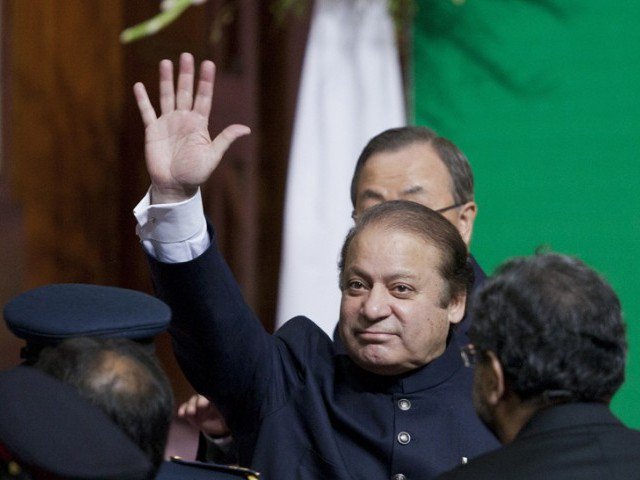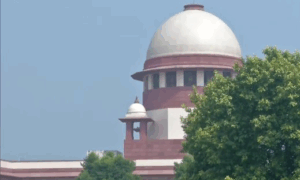
Picture Credit : The Express Tribune
Pakistan’s ousted Prime Minister Nawaz Sharif will chair a meeting to decide his successor, a day after he was disqualified by the Supreme Court. Sharif, 67, was disqualified for dishonesty and ruled that corruption cases be filed against him and his children over the Panama Papers scandal, forcing the embattled leader out of office.
According to PTI news report, Senior Pakistan Muslim League leader Khawaja Saad Rafique said the party’s meeting today is likely to include discussion on candidates for the post of the prime minister, the party’s new president and members of the cabinet. “Different options were discussed in a similar meeting yesterday but no decision was taken,” he said.
Party sources said Sharif proposed the name of his younger brother Shehbaz Sharif in yesterday’s meeting and none of the participants objected. But Mr Shehbaz, 65, cannot immediately replace his brother as he is not a member of parliament. In order to become the prime minister, he would have to be elected first. Hence, an interim prime minister would have to be chosen from among Mr Sharif’s confidants who will resign once Mr Shehbaz is elected.
Pakistan has seen such arrangements in the past. During former General Pervez Musharraf’s time, politician Chaudhry Shujaat Hussain was appointed interim prime minister until Shaukat Aziz, who was nominated by Mr Musharraf, got elected by the ruling Pakistan Muslim League Quaid-e-Azam (PMLQ).
According to party sources, Mr Sharif was conscious that bringing Punjab Chief Minister Mr Shehbaz to Islamabad may create political vacuum in the crucial state, which PML-N cannot afford ahead of next year elections. Hence, there is possibility that a permanent prime minister might be elected from the senior party leader rank for the remaining tenure of the government, which would end in first week of June 2018.
In case Mr Shehbaz is elected is premier, then his son Hamza could be a choice for the post of chief minister of Punjab. But the problem is that Mr Hamza is a member of the national assembly and would have to be elected as member of provincial assembly first in order to succeed his father.
The party would have to decide a prime minister for the interim period in case Mr Shehbaz emerges as the final consensus candidate for the top job.
Different names so far considered to become interim prime minister include former defence minister Khawaja Asif, former petroleum minister Shahid Khaqan Abbasi, former planning minister Ahsan Iqbal and national assembly speaker Ayaz Sadiq.


















